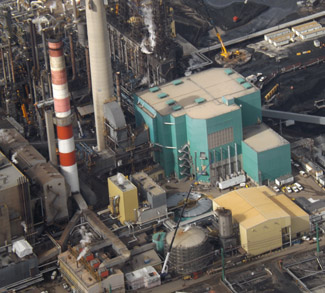OPEC’s latest decision not to cut its export quota and prop up sagging oil prices will have cascading consequences through 2016 and beyond. Oil producers, some of them already on the brink of fiscal collapse, can now expect another prolonged period of belt-tightening as prices dip into the sub-$40 range. In some cases this applies to entire states, such as OPEC’s ‘Fragile Five’ governments that are collectively running massive deficits while the market remains flooded with cheap oil.
In the Canadian context, the pain is being felt by energy companies that face relative high oil extraction costs vis-à-vis their Middle Eastern counterparts. It has been a year of cost-cutting, layoffs, slashing capital expenditure budgets, and borrowing as Canadian energy companies attempted to ride out the low-price environment and wait for the day that OPEC pulls back from the brink.
Many of these companies were already hurting in the lead-up to OPEC’s latest meeting. Alberta, the center of Canada’s energy sector, has already seen well over 12,000 lose their jobs in 80 rounds of mass layoffs in 2015 alone. And as oil has now dipped below $38 for the first time since OPEC’s price war began, it’s clear that there’s a lot more cost-cutting to come.
The damage is readily apparent in Calgary, the capital of Canada’s energy industry, where real estate prices have plunged since the OPEC price war began. Recent data from the Calgary Real Estate Board found that residential prices dropped 5.1% in November, and sales volume was down around 30% year-on-year. The same story is true of commercial real estate. The boom years created a glut of commercial office space in downtown Calgary, space that is now increasingly lying vacant. The city’s vacancy rate for office space reached 17.5 percent this year, and it is expected to peak at 18 percent by the third quarter of 2016. Residential vacancies are also inching upwards, reaching 3.5% this year from 1.4% the year before.




